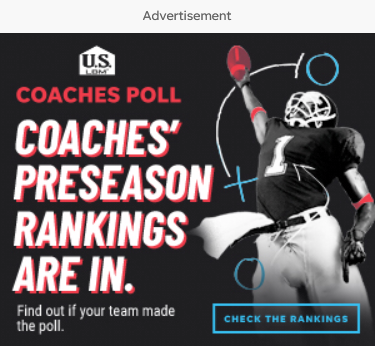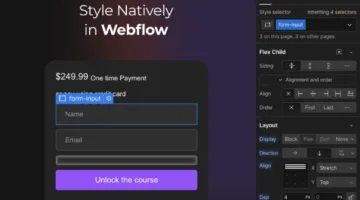Photo by Team TGM
Artificial Intelligence (AI) is no longer just a cool technology—it’s a career survival skill. If you’re between the ages of 18 and 45, chances are AI will directly impact your job, your growth, and even your earning potential in the next few years.
Here’s the truth: AI won’t fully replace humans, but humans who know how to use AI will replace those who don’t. That’s why learning AI isn’t optional anymore—it’s a must if you want to stay relevant in your career.
In this article, we’ll explore why every professional should learn AI, how it boosts career growth, what happens if you ignore it, and how to get started (even if you’re not from a tech background).
Table of Content:
Why Everyone Should Learn AI in 2025
Think back to the 1990s when Microsoft Excel started spreading into offices worldwide. People who didn’t learn Excel struggled with even the simplest data tasks, while those who mastered it became more employable and climbed the ladder faster.
AI in 2025 is the new Excel. Every industry—from marketing and finance to education and healthcare—is adopting AI tools to work faster and smarter.
- Students who use AI can learn better, write research faster, and improve productivity.
- Professionals can automate boring tasks, freeing time for high-value work.
- Entrepreneurs can scale businesses without hiring large teams.
How AI Can Boost Your Career Growth
Whether you’re a fresher, mid-level professional, or manager, AI can help you work better. Here’s how:
1. Save Time on Repetitive Tasks
AI can draft emails, prepare reports, design presentations, and even schedule meetings. That means less time wasted on admin work and more focus on creative or strategic tasks.
2. Make Smarter Decisions
AI-powered tools can analyze data patterns that humans often miss. Imagine being in marketing and instantly knowing what content your audience engages with—or being in finance and predicting risks more accurately.
3. Stand Out in the Job Market
Companies are actively looking for people who can leverage AI. Adding AI skills to your resume is like holding a “VIP pass” to better opportunities.
4. Higher Earning Potential
A 2024 LinkedIn report showed that professionals with AI skills earn 20–40% more than their peers in the same roles.
AI Skills Every Professional Should Know
The best part is—you don’t need to be a programmer. Instead, you can focus on practical AI skills that directly help in your career.
- Prompt Engineering: Knowing how to give effective instructions to AI tools (like ChatGPT, Claude, or Gemini).
- Automation Basics: Setting up simple AI automations for emails, social media, or reports.
- AI Analytics: Using AI to analyze customer data, surveys, or sales numbers.
- Content Creation: Writing, designing, or editing content with AI tools.
- Industry-Specific AI Tools: For example, Canva AI for designers, Jasper for marketers, Otter.ai for meetings, or GitHub Copilot for coders.
Jobs AI Will Transform (And Why You Need to Adapt)
A lot of people worry, “Will AI take my job?” The answer: AI will change jobs, not just take them.
Here’s how different industries are being reshaped:
- Marketing Content: AI handles content drafts, SEO, and ads. Marketers who learn AI can run bigger campaigns with smaller teams.
- Design: Tools like Canva AI and Adobe Firefly make design faster. Designers who combine creativity + AI will outshine those who resist it.
- Healthcare: AI is helping diagnose diseases faster. Doctors and nurses who use AI tools can provide better care.
- Finance: AI automates bookkeeping, fraud detection, and forecasting. Finance professionals with AI skills will lead teams.
- Education: Teachers using AI can personalize lessons for students.
What Happens If You Ignore AI Skills?
Here’s the harsh reality:
- Reduced Career Opportunities: Recruiters prefer candidates with AI skills.
- Slower Growth: Tasks that take you hours might take others minutes with AI.
- Risk of Replacement: Employers may choose AI-enabled employees or even AI-powered systems over traditional workers.
- Missed Freelancing/Side Hustle Opportunities: Many freelancers earn big by using AI for faster delivery. Without AI, you lose out.
It’s not about fear—it’s about reality. Ignoring AI in 2025 is like refusing to use the internet in the 2000s.
AI Is Not Just for Tech People
One of the biggest myths is: “I’m not from tech, so AI is not for me.”
Wrong.
AI is helping non-tech professionals more than anyone:
- Writers: AI tools help brainstorm, edit, and create articles.
- HR Managers: AI screens resumes and helps with employee engagement.
- Small Business Owners: AI automates social media, customer queries, and invoices.
- Students: AI helps with notes, assignments, and exam preparation.
If you know how to use Google Search, you can learn AI.
How to Start Learning AI (Even If You’re a Beginner)
You don’t need a computer science degree. Just follow this roadmap:
- Start Small: Pick one AI tool relevant to your field (e.g., ChatGPT for writing, Canva AI for design).
- Use Free Plans: Most AI tools have free versions—explore before paying.
- Practice Daily: Apply AI to your work (emails, notes, presentations).
- Follow Tutorials: YouTube and LinkedIn Learning are gold mines.
- Join Communities: Reddit, Discord, and LinkedIn groups for AI tips.
- Upgrade Gradually: Move from basics to advanced skills like automation and analytics.
Will AI Replace Your Job or Help You Do It Better?
Here’s a mindset shift: AI is not your competitor—it’s your teammate.
- People who use AI become 10x more productive.
- Teams with AI save 40% more time.
- Employees skilled in AI often move into leadership roles faster.
The Future of Work: AI-Driven Careers in 2025 and Beyond
Looking ahead, the demand for AI-related roles is skyrocketing:
- AI Trainers (teaching AI models better responses)
- Prompt Engineers
- AI Business Consultants
- AI Content Strategists
- Data Analysts with AI expertise
Conclusion: Embrace AI or Risk Being Left Behind
To sum it up:
- AI is not optional—it’s a core skill for 2025 and beyond.
- Learning AI boosts your growth, salary, and job security.
- Ignoring AI can slow your career or even replace you.
Now is the perfect time to start. You don’t need to become a programmer—just learn how to use AI tools in your daily work
Start small. Practice daily. And remember: The future belongs to those who learn how to work with AI, not against it.
-
Start with ChatGPT (writing, prompts, research), Canva AI (design & visuals), and Otter.ai (meeting notes/transcripts). These cover writing, design, and productivity without coding.







